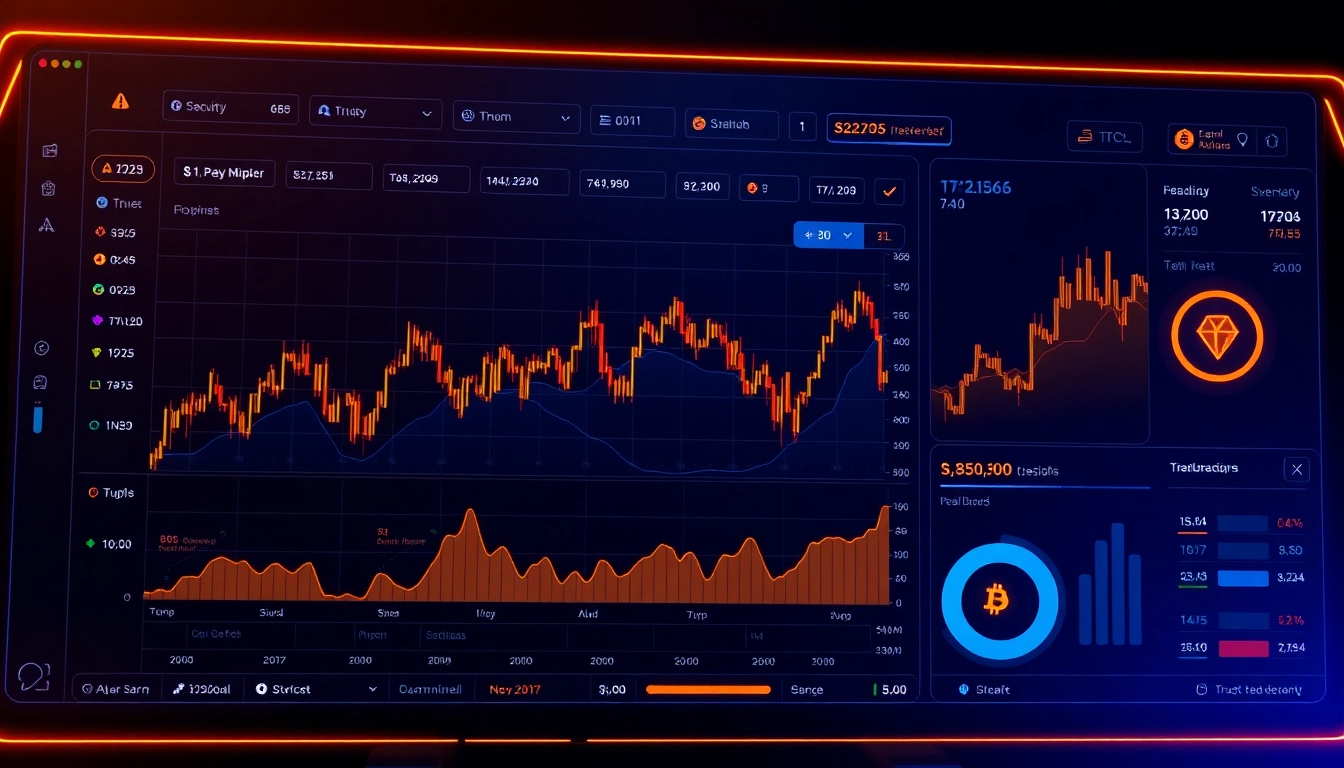Understanding the Role of a Real estate CRM in Modern Agencies
In today’s competitive real estate landscape, staying ahead requires more than just good deals and marketing skills. Technology plays a central role in transforming how real estate agents operate, with one of the most vital tools being the Real estate CRM. A customer relationship management (CRM) system tailored for real estate empowers agents to streamline their workflows, enhance client interactions, and ultimately close more deals with efficiency and confidence. This comprehensive guide explores the multifaceted role of real estate CRMs, their features, benefits, and how modern platforms like Anyone are redefining industry standards.
What Is a Real estate CRM and Why It Matters
A real estate CRM is a specialized software designed to organize, automate, and synchronize sales, marketing, customer service, and transaction management processes within a single platform. Unlike generic CRMs, real estate CRMs focus on the unique needs of property agents and brokers, integrating property data, lead tracking, communication tools, and transaction workflows.
Why does it matter? Because real estate transactions are complex, involving numerous touchpoints, documents, and client interactions. Managing these manually or through disjointed tools leads to inefficiencies, missed opportunities, and dissatisfied clients. A dedicated CRM consolidates all these elements, offering a centralized hub that enhances productivity and improves client satisfaction. For instance, platforms like Anyone unify listings, leads, communication, and transaction management, making it easier for agents to deliver a seamless customer journey.
Key Features and Benefits for Agents
Modern real estate CRMs come equipped with a variety of features that directly impact an agent’s ability to operate effectively:
- Lead Management & Generation: Automated lead capture from multiple sources, intelligent matching algorithms, and exclusive lead driving tools ensure agents always have potential clients in their pipeline.
- Contact & Client Management: Detailed client profiles, communication history, and activity logs help agents nurture relationships and provide personalized service.
- Listing and Property Data: Access to extensive property databases, auto-filled property details, and market insights enable accurate valuations and attractive listings.
- Workflow & Task Automation: Auto-updating to-do lists, follow-up reminders, and process automation eliminate manual tracking, freeing agents to focus on client interactions.
- Transaction Management: Guided workflows for buying and selling, document management, and real-time updates streamline complex deals and reduce errors.
- Communication & Collaboration: Centralized messaging, shared workspaces, and integrated viewing tools enhance cooperation with clients and team members.
- Analytics & Performance Metrics: Real-time dashboards and reporting tools allow agents to evaluate performance, identify bottlenecks, and adjust strategies accordingly.
By leveraging these features, agents can handle more clients, reduce administrative burdens, and deliver superior service—all of which lead to increased commissions and long-term success.
Difference Between Traditional and Digital CRM Solutions
Traditional CRM systems, often paper-based or isolated software, lack integration and real-time capabilities. They require manual data entry, are prone to errors, and often involve cumbersome processes. In contrast, digital, all-in-one solutions such as Anyone offer dynamic, cloud-based platforms that seamlessly connect listings, leads, transaction workflows, and communication channels.
Key differences include:
- Accessibility: Cloud-based CRMs provide access from any device, anywhere, fostering remote and flexible work environments.
- Automation & Integration: Automated data entry, auto-filling listings, and integrated communication tools create a cohesive workflow.
- Real-Time Updates: Instant notifications and updates keep all stakeholders informed, reducing delays and miscommunication.
- Cost & Scalability: Modern CRMs like Anyone are cost-effective, offering scalable solutions that grow with your business.
This evolution translates into faster transaction speeds, better client engagement, and a more competitive edge in the marketplace.
Core Tools and Capabilities of a Real estate CRM Platform
Listing Management and Workflow Optimization
Effective listing management is the backbone of any successful real estate operation. Platforms like Anyone allow agents to handle all listings from a centralized dashboard. Features include auto-importing listing data via extensive databases access; status tracking for stages such as active, pending, sold; and visual workflows that map out every step in the sale process.
Workflow optimization tools automate repetitive tasks, such as updating listing statuses or sending follow-up messages, reducing manual effort and minimizing errors. Automation ensures every task—from scheduling viewings to negotiating offers—is completed efficiently, enabling agents to focus on high-value activities.
Lead Generation and Client Engagement
Lead generation remains a critical focus for agents aiming to grow their business. Platforms like Anyone utilize advanced algorithms and proprietary tools, such as the ‘Find an Agent’ feature using over 12 billion data points, to match motivated buyers and sellers directly with agents. This results in exclusive, high-quality leads delivered straight into your workflow.
Furthermore, integrated communication channels allow instant follow-up, nurturing prospects through automated drip campaigns, personalized messages, and real-time notifications. Client engagement is elevated through tailored experiences, market insights, valuations, and property recommendations, impressing clients and building trust over time.
Transaction Management and Collaboration Tools
Closing deals involves numerous steps—document signing, negotiations, scheduling, and coordination among multiple parties. A robust CRM like Anyone offers guided transaction workflows, keeping all parties aligned and informed. Automatic updates notify clients of new developments, eliminating the need for constant manual updates.
Collaboration tools, including shared workspaces and in-platform negotiations, facilitate seamless communication between agents, clients, notaries, and mortgage providers. This holistic approach reduces transaction time and enhances transparency and client satisfaction.
Integrating a Real estate CRM Into Your Business Operations
Implementation Steps and Best Practices
Integrating a new CRM like Anyone should follow a structured approach:
- Define Your Business Goals: Understand what you want to achieve—be it increased leads, faster transactions, or better client communication.
- Data Migration & Setup: Import existing client and listing data, set up user profiles, and customize workflows according to your processes.
- Training & Adoption: Invest in staff training to ensure seamless adoption. Many platforms offer tutorials, webinars, and dedicated support.
- Automation & Customization: Automate repetitive tasks such as follow-ups or listing updates. Tailor the platform’s features to your business needs.
- Monitor & Optimize: Regularly review performance metrics, user feedback, and system reports to refine workflows.
Enhancing Client Relationships with Automation
Automation transforms client engagement from reactive to proactive. Automated drip campaigns nurture clients with relevant updates about properties, market trends, or transaction milestones. Scheduled follow-ups and personalized messaging increase the likelihood of closing deals.
Furthermore, automatic notifications about new listings or price changes keep clients in the loop without manual oversight, leading to higher satisfaction and trust.
Measuring Success and ROI
Key performance indicators (KPIs) to assess your CRM’s impact include:
- Lead conversion rates
- Time-to-close per transaction
- Client satisfaction scores
- Repeat business and referrals
- Operational efficiency metrics, such as time spent on administrative tasks
Using these metrics, agents can fine-tune their workflows, justify ROI, and make data-driven decisions to expand their business offerings.
Addressing Common Challenges and FAQ
Data Security and Privacy Considerations
With sensitive client information stored digitally, security is a paramount concern. Leading platforms like Anyone employ advanced encryption, secure login protocols, and regular audits to protect data. Additionally, compliance with privacy standards such as GDPR ensures client data remains confidential and secure.
International Client Management Capabilities
Global real estate transactions require tools that support multiple currencies, languages, and legal frameworks. Platforms like Anyone are designed to facilitate international client management, enabling agents to operate across borders, manage multi-language support, and integrate with international mortgage and legal service providers.
Inviting Colleagues and Team Collaboration
Teamwork is vital in real estate. Modern CRMs offer multi-user access, where team members can share contacts, listings, and transaction updates. Within platforms like Anyone, you can invite colleagues under the same company account, assign roles, and monitor activity—all fostering a collaborative environment that drives business growth.
Future Trends and Innovations in Real estate CRM Technology
Upcoming Features & Integrations
The evolution of real estate CRMs continues. Future enhancements for platforms like Anyone include integrations with professional services such as mortgage providers, valuators, notaries, and photographers, all aimed at simplifying the transaction process. Additional features like “Buy Now” options and advanced distribution networks are also on the horizon, offering full-service solutions.
How a CRM Continues to Evolve for Agents
As technology advances, CRMs are increasingly leveraging artificial intelligence, virtual reality, and big data analytics. These innovations facilitate smarter lead matching, virtual property tours, and predictive market insights, empowering agents to provide cutting-edge service and maintain a competitive advantage.
Staying Ahead in Competitive Markets
In highly competitive regions, early adoption of robust CRM solutions can be a differentiator. Continuous training, integrating new features, and analyzing performance metrics enable agents to stay agile and responsive to market changes, ensuring sustained success.



